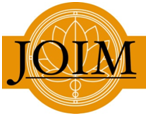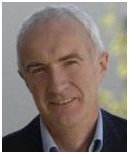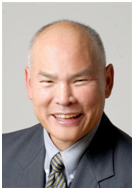
COOPERATION BETWEEN EDHEC-RISK, JOIM AND OXFORD UNIVERSITY
Presentation of the Partner
 Saïd Business School at the University of Oxford blends the best of new and old. We are a vibrant and innovative business school, but yet deeply embedded in an 800 year old world-class university. We create programmes and ideas that have global impact. We educate people for successful business careers, and as a community seek to tackle world-scale problems. We deliver cutting-edge programmes and ground-breaking research that transform individuals, organisations, business practice, and society. We seek to be a world-class business school community, embedded in a world-class University, tackling world-scale problems.
Saïd Business School at the University of Oxford blends the best of new and old. We are a vibrant and innovative business school, but yet deeply embedded in an 800 year old world-class university. We create programmes and ideas that have global impact. We educate people for successful business careers, and as a community seek to tackle world-scale problems. We deliver cutting-edge programmes and ground-breaking research that transform individuals, organisations, business practice, and society. We seek to be a world-class business school community, embedded in a world-class University, tackling world-scale problems.
In the Financial Times European Business School ranking (Dec 2014) Saïd is ranked 10th. It is ranked 10th worldwide in the FT’s combined ranking of Executive Education programmes (May 2015) and 22nd in the world in the FT ranking of MBA programmes (Jan 2015). The MBA is ranked 7th in BusinessWeek’s full time MBA ranking outside the USA (Nov 2014) and is ranked 5th among the top non-US Business Schools by Forbes magazine (Sep 2013). The Executive MBA is ranked 21st worldwide in the FT’s ranking of EMBAs (Oct 2014). The Oxford MSc in Financial Economics is ranked 7th in the world in the FT ranking of Masters in Finance programmes (Jun 2014). In the UK university league tables it is ranked first of all UK universities for undergraduate business and management in The Guardian (May 2015) and has ranked first in nine of the last eleven years in The Times (Sept 2014).

The Journal Of Investment Management (JOIM) (established in 2003) is a high quality, fully refereed publication, which bridges the theory and practice of investment management. The JOIM offers rigorous research with practical significance, drawing from the disciplines of finance, economics and accounting. Special issues on timely topics including distinguished authors who have both impressive academic and professional experience are a highlight. Our overall goal is to be mindful of the need to present the very best quality material in a form appealing to the practitioner, student and academic.
Our framework for editorial review is fundamental to our mission. Aside from the double blind refereeing of all manuscripts, authors are encouraged to place equations in a technical appendix with each equation accompanied by a descriptive interpretation in words.
Other features of JOIM include full color printed graphics, a Practitioners Digest which highlights the practical significance of each manuscript; an Insights section where leading authorities from academia and the profession share insights or thoughts; Case Studies on topics of timely interest; Surveys, Technology and Crossovers provides surveys of the literature in investment management or short papers exemplifying advances in finance that arise from the confluence with other fields. This section acknowledges current trends in, and the cross-disciplinary nature of the investment management business, while directing the reader to interesting and important recent work and Book Reviews.
In addition, the JOIM has the annual Harry M. Markowitz Award (honoring his legacy and supporting future research and innovation in the practice of asset management). JOIM has ranked 8 out of 41 financial journals for global impact and first among practitioner publications.
Our overall goal is to be mindful of the need to present the very best quality material in a form appealing to the practitioner, student and academic.
Points of contact:

Tim Jenkinson is Professor of Finance at the Saïd Business School, University of Oxford. One of the leading authorities on private equity, IPOs, and institutional asset management, Tim is renowned for his ability to collect critical, previously inaccessible, data by building strong links with institutional investors, banks and other players in the financial industry. His research is widely quoted and has been published in the top academic journals. He is Head of the Finance Group at Saïd Business School, Director of the Oxford Private Equity Institute, and is one of the founders of the Private Equity Research Consortium. Tim is a renowned teacher and presenter, and teaches executive courses on private equity, entrepreneurial finance, and valuation. He is a frequent keynote speaker at practitioner conferences and his research has recently been awarded the 2015 Commonfund Prize (for the paper with the most relevance to institutional investors) and a 2014 Brattle Group Prize (awarded by the American Finance Association for the best research on corporate finance).
Outside of academe he is a partner at the leading economics consultancy Oxera, where he chairs the Remuneration Committee and Oxera Holdings Ltd. He specializes on financial regulation, asset management and the cost of capital, and has been an expert witness in several high-profile cases. He has previously held board positions in several funds and companies, including PSource Structured Debt (listed on the London Stock Exchange) and the utility comparison firm Verivox GmbH.
He studied economics as an undergraduate at Cambridge University, before going as a Thouron Fellow to the University of Pennsylvania. He then returned to the UK and obtained a DPhil in Economics from Oxford.

Gifford Fong is President of Gifford Fong Associates, a firm specializing in fixed income, derivative product and asset allocation analysis. Independent valuation, model validation and portfolio strategy analysis are areas of emphasis. He is a graduate of the University of California where he earned his B.S., M.B.A. and J.D. (law).
Mr. Fong is the editor of the Journal Of Investment Management (JOIM); founder of the JOIM Conference Series; member of the Corporation Visiting Committee for the MIT Sloan School of Management; member of the North American Executive Board of the MIT Sloan School; member of the Advisory Board of the Finance Faculty of the MIT Sloan School; founding sponsor, member of the Steering Committee of the Masters in Financial Engineering Program at the University of California at Berkeley; member, Haas Hall of Fame, Haas School of Business, University of California at Berkeley; member of the of the Academic Advisory Board of the Consortium for Systemic Risk Analytics; member of Advisory Board of the MIT Center for Finance and Policy; member of the Advisory Board of Trustees, University of California, Berkeley Foundation; former editor of the Financial Analysts Journal; former member of the Board of Directors and Program Chairman of the Institute for Quantitative Research in Finance; former member of the Advisory Group of the University of California Regents Committee on Investments; former Vice Chair and member of the Research Committee of the Research Foundation of the CFA Institute and a contributor to a number of professional books and journals.
He is also the author of numerous professional journal publications. Mr. Fong has received a number of honors, including the Institute for Quantitative Research in Finance Award and the Financial Analysts Journal Graham and Dodd Award of Excellence.
Presentation of the Partnership
EDHEC-Risk, JOIM and Oxford University have joined forces for the first time to feature the best of the current state of the art, which has immediate as well as future impact on the practice of Retirement Investing. The JOIM-Oxford-EDHEC Retirement Investing Conference took place from 11 to 13 September 2016 on the Oxford University campus and showcased the highest quality thinking and research in the area. The programme was developed on a foundation of academic rigour with an overriding objective of identifying practical significance. Leading experts from the US and Europe featured, including the Nobel Prize recipient, Robert Merton.

Also in attendance were Andrew Lo and Deborah Lucas from the MIT Sloan School of Management, Mark Kritzman (Windham Capital), Martin Leibowitz (Morgan Stanley Research), Tim Jenkinson (University of Oxford) and Lionel Martellini (EDHEC-Risk Institute).

